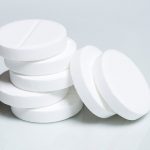
Never mind the grumbles and groans that accompany a clock alarm, along with a lunge for the snooze bar and murmurs of “five more minutes.” People generally wake in their best frame of mind, enjoying peak mental health and wellbeing in the morning, researchers reported in a new study published Feb. 4 in BMJ Mental Health. They also tend to feel worst around midnight, with the day of the week and season of the year also playing a role, researchers found. “Generally, things do indeed seem better in the morning,” concluded a team led by Feifei Bu, a principal research fellow in behavioral science and health at University College London. These results don’t just give a better insight into how people’s moods change throughout the day, researchers said. They also can help guide future efforts to track and treat people’s mental health, since the time of day can influence how a person might feel. “Our findings indicate the importance of considering time, day and season in mental health and well-being research,” the team wrote. “These factors should also be considered for the design and delivery of interventions, as well as the planning and provision of public health services.” For the study, researchers analyzed data from more than 49,000 people who participated in a social study related to the COVID-19 pandemic. The study, which began in… read on > read on >


















